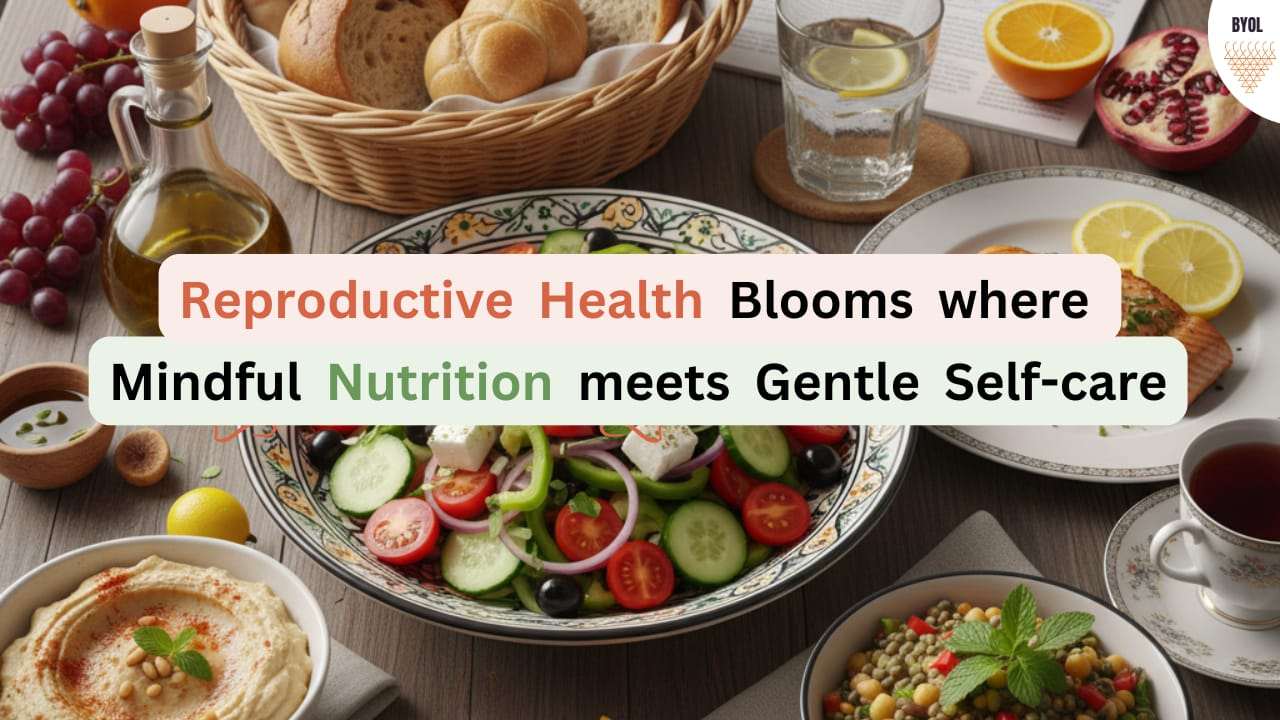BY: Dr Manisha Chauhan, Resident IMS BHU PSYCHIATRY The fear is real,so is the competition,constant urge to be better.Indian students […]
Mediterranean Diet and Endometriosis: Nutritional Insights into Reproductive Health

For millions of women worldwide, endometriosis is a chronic, painful condition that affects fertility and quality of life. Now, a recent study published in Scientific Reports has revealed a compelling association between dietary habits and endometriosis risk: women who adhered to a Mediterranean-style diet had significantly lower odds of developing the condition.
The study, conducted among Iranian women, emphasizes that while causality cannot be established due to the case–control design, diet remains a crucial, modifiable factor in endometriosis prevention and management.
Background: Understanding Endometriosis
Endometriosis is a chronic, estrogen-dependent disorder in which tissue resembling the uterine lining grows outside the uterus, often in the pelvic region. It affects approximately 10% of women of reproductive age and is a leading cause of pelvic pain and infertility.
The development of endometriosis involves complex hormonal, inflammatory, and immune processes, influenced by both genetic and environmental factors. Common symptoms include:
- Non-menstrual pelvic pain
- Dysmenorrhea (painful periods)
- Lower back pain
While known risk factors include physical inactivity, body weight, oral contraceptive use, smoking, and alcohol intake, diet has recently emerged as an important modifiable factor.
Nutrition can influence:
- Inflammation
- Oxidative stress
- Hormonal balance
- Muscle contractions
These processes are implicated in the progression of endometriosis. Prior research has suggested that diets rich in fruits, vegetables, polyunsaturated fatty acids, and plant-based foods can reduce inflammation and alleviate pain symptoms.
Interestingly, while whole grains are generally considered beneficial, this study noted an opposite trend regarding endometriosis risk, warranting further investigation.
About the Study
Researchers conducted a hospital-based case-control study in Tehran, Iran, including 115 women with surgically or histologically confirmed endometriosis and 230 controls without the disease. After excluding incomplete data, the final analysis included 105 cases and 208 controls.
Participant Criteria:
- Aged 18–49 years
- Not pregnant, breastfeeding, or menopausal
- Free from major chronic diseases such as diabetes, cardiovascular disease, or cancer
Ethics:
- Ethical approval was obtained
- All participants provided informed consent
The researchers assessed participants’ adherence to the Mediterranean diet, which emphasizes fruits, vegetables, legumes, nuts, seeds, whole grains, fish, and olive oil, while limiting red and processed meats, dairy, and sweets.
Key Findings
- Women with higher adherence to the Mediterranean diet had significantly lower odds of endometriosis.
- Protective dietary components included: fruits, vegetables, legumes, nuts, and fish.
- Increased consumption of red meat and dairy was associated with higher odds of developing endometriosis.
- Surprisingly, higher whole grain intake correlated with a slightly higher risk, highlighting the need for further research.
Implications for Prevention and Management
The study underscores the potential of dietary modification in reducing endometriosis risk. Recommendations based on the findings include:
- Increasing intake of ,fruits, vegetables, legumes, nuts, and fatty fish
- Limiting red and processed meats, high-fat dairy, and added sugars
- Consulting healthcare professionals for personalized dietary guidance
These changes may not only reduce the likelihood of endometriosis but also help manage symptoms and support overall reproductive health.
Conclusion
Adherence to a Mediterranean-style diet, characterized by plant-based, nutrient-dense foods and healthy fats, is associated with dramatically lower odds of endometriosis. This finding positions dietary intervention as a promising adjunct in reproductive health management, emphasizing the critical role of nutrition in disease prevention and overall well-being.
Future Directions: Longitudinal and mechanistic studies are warranted to confirm causality and elucidate how specific dietary components modulate endometriosis pathophysiology, paving the way for personalized nutritional recommendations in reproductive medicine.
Reference:
- Faraji, M., et al. (2025). Adherence to a Mediterranean diet and odds of endometriosis: A case-control study. Scientific Reports. https://www.nature.com/articles/s41598-025-20621-6
- News-Medical. (2025). Mediterranean diet linked to dramatically lower odds of endometriosis. https://www.news-medical.net/news/20251022/Mediterranean-diet-linked-to-dramatically-lower-odds-of-endometriosis.aspx
- Viganò, P., Parazzini, F., Somigliana, E., & Vercellini, P. (2018). Endometriosis: Epidemiology and risk factors. Best Practice & Research Clinical Obstetrics & Gynaecology, 51, 3–11. https://doi.org/10.1016/j.bpobgyn.2018.04.006
- Bulun, S. E. (2009). Endometriosis. New England Journal of Medicine, 360(3), 268–279. https://doi.org/10.1056/NEJMra080460
- Missmer, S. A., et al. (2004). Diet and risk of endometriosis in a cohort of US women. American Journal of Epidemiology, 160(9), 784–796. https://doi.org/10.1093/aje/kwh281


